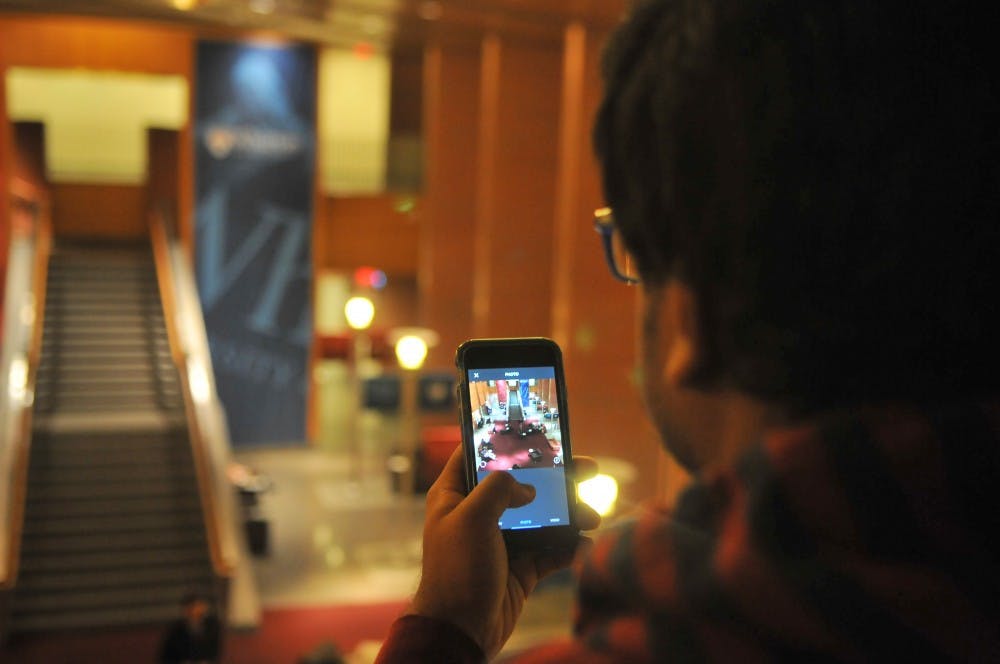
Wharton undeniably influences every facet of Penn's campus culture — from the academics to the social life. But that is not necessarily a bad thing.
Prior to coming to Penn, I had an astonishingly narrow view of the finance world. Like many Americans, most of what I knew came from watching The Wolf of Wall Street and The Big Short.
I thought that the fields taught at Wharton were irrelevant to what I wanted to study or do with my life. I was wrong. Partially because it was forced on me by Wharton’s heavy presence on campus, I quickly discovered the interconnectedness of business and civil society.
At first, Penn’s pre-professional culture and the student body’s focus on the most prestigious firms seemed excessive. However, I quickly realized that Wharton’s influence on Penn’s campus is a microcosm of business and money’s influence on the world. And whether I believed this influence to be positive or negative, the fact remained: it was necessary to understand how these interactions work if I wanted to make the world a better place.
Even if I didn’t plan to pursue investment banking or finance myself, chances are I would still interact with professionals in these fields. Nonprofit and foundation leaders constantly meet with corporate leaders to network and fundraise. Additionally, politicians regularly meet with corporate lobbyists when creating policy.
Regardless of career, it is imperative to understand the influence of corporations on our politicians. Since coming to Penn, I’ve shifted the way I perceive the actions of government officials based on what industries I know are funding their campaigns and lobbying their agendas. This understanding, often lacking in our national voter education, is accessible to us by viewing Wharton’s emphasis on public policy.
For students who wish to work in public interest, this understanding is especially necessary. Business can be the root of many inequalities. While consumers benefit from the cost of cheap goods, workers who make those goods often earn well below living wages. Studies show that garment workers in Bangladesh earned less than the minimum hourly wage 64 percent of the time.

Engineering senior Ishmam Ahmed captures the Hunstman forum for Penn's Instagram.
Additionally, income inequality has been on the rise in the United States. According to a report by the Economic Policy Institute, the top 1 percent of families in the United States earned around 26.3 times more than the bottom 99 percent in income.
Solutions to these issues require thinkers from a variety of areas to work together. On campus, there can be an unfortunate divide between Wharton students and College students. This divide, flowing into post-grad, results in a blockade to an educated collaboration between public and private sectors. We have the opportunity to bridge this gap of communication as undergraduates.
Wharton is consistently ranked one of the best business schools in the world. Attending a school like Penn gives us an unparalleled opportunity to learn from elite business professionals, in the shape of both peers and faculty.
All Penn undergraduates are allowed to take classes in Wharton. We even have the opportunity to pursue inter-school minors in Wharton. More students should take advantage of these opportunities.
In the same vein, Wharton students should take advantage of learning from students from other schools. While many Wharton classes teach students how to maximize efficiency in business, many College classes teach students the sociological, political, and historical outcomes of these business interactions. Wharton students can benefit from comprehending these perspectives and implementing their lessons in future work.
Before any of us can do our part to create a more equitable world, we must understand all the systems that shape it. Though business can cause social inequalities, it also has the potential to uplift communities and contribute to achieving development goals. I’m grateful that Wharton has given me insight into the powerful relevance of these fields.

UROOBA ABID is a College sophomore from Long Island, N.Y. studying International Relations. Her email address is uabid@sas.upenn.edu.
The Daily Pennsylvanian is an independent, student-run newspaper. Please consider making a donation to support the coverage that shapes the University. Your generosity ensures a future of strong journalism at Penn.
Donate







